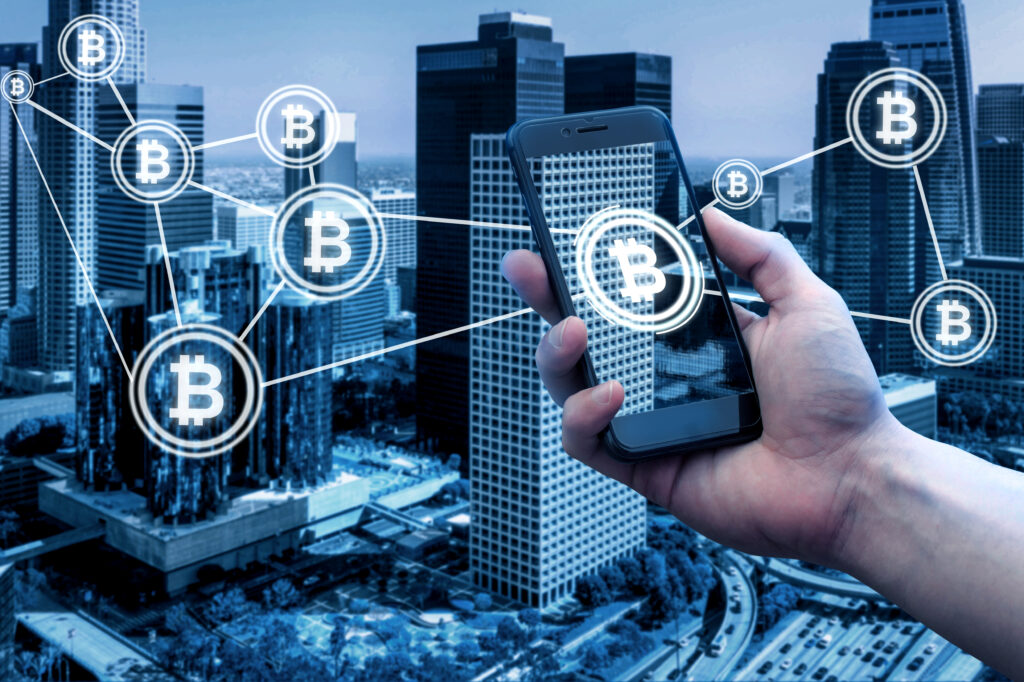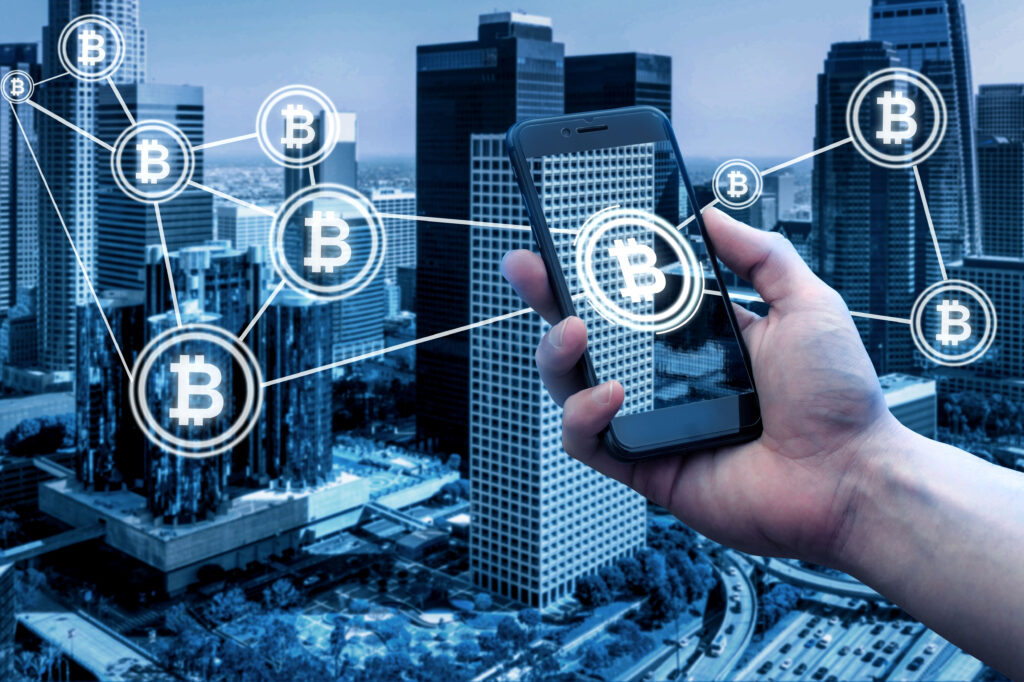Blockchain was invented chiefly as a basis for cryptocurrencies like Bitcoin. It has evolved into a powerful machine much more than any digital currency ever invented. In reality, real estate is one of the brighter spots for blockchain usage. For such a long time by principle, buying, selling, and managing properties have entailed un-effective paperwork and too many inefficiencies with the middlemen. This can introduce any process of real estate into transparency, security, and efficiency, thus making it faster, cheaper, and even more secure.
Through this blog, we would take you through how blockchain is changing the real estate industry, especially about different roles it plays in streamlining property transactions, improving transparency, and reducing fraud.
1. Streamlining Property Transactions
Usually, all such transactions – both of a residential and commercial type – involve a certain period of time and several intermediaries: brokers and banks, lawyers, government institutions. Of course, these middlemen are important for the legalization of the transaction, in which the verification of ownership and clearing of payment are provided. However, such participation on the part of third parties causes delays, increased expenditures, and inefficiencies.
This can become even smoother with the help of blockchain technology and peer-to-peer transactions allowed through smart contracts. Smart contracts are essentially programmed contracts encoded in the blockchain for enforcing certain contracts once certain conditions have been met. Such contracts reduce the dependence on third parties to act between buyers and sellers and allow direct buyer-to-seller interactions. This results in an accelerated transaction process with lesser fees, paper, and time.
For example, if a buyer and seller have agreed to sell the property on a blockchain-based platform, the smart contract can be set up such that once the payment is confirmed on the blockchain, it then automatically transfers the ownership of property. Escrow services, title companies, as well as manual verifications will be done away with but the transaction will be accelerated with cost-cutting.
2. Transparency: Reduces fraud
Real estate fraud is a problem regarding several parts of the world. This could be in the forgeries of documents, claims of false ownership, or even title fraud that will translate to losses over money at the time of buying or selling properties. Blockchain technology ensures immutability: A decentralized ledger in which transaction records and even property information can be stored in a safe and easy-to-verify manner.
Recording every transaction in the blockchain gives permanent and tamper-proof records. This means that property ownership, liens, as well as title histories, are updated and correct. Since blockchain data cannot be altered once recorded, this reduces fraud possibilities by a large extent. The seller may be confident that his property records are secure, and the buyer does not have qualms when checking the legitimacy of the property title before finalizing the deal.
Blockchain could provide an open, transparent system of recording and verify property ownership in countries where fraudulence and title of land disputes are rampant. Already, several governments and private bodies in several countries have initiated a dialogue on the possibility of the blockchain-based land registries in order to increase trust and reduce further disputes concerning land ownership.
3. Tokenization of Real Estate Assets
Among all applications of blockchain technology, perhaps the most disruptive in real estate is tokenization: where a tangible asset is divided into digital tokens representing ownership. A token could represent a portion of a property, so investors can go and buy and sell portions of ownership without having to buy the whole building or land.
It was essentially democratizing investment in real estate through fractional ownership. Traditionally, investing in real estate requires a lot of capital, thereby limiting the opportunity to small investors. Tokenization allowed people to buy tokens representing the part and receive benefit from appreciation or rental income.
Tokenized real estate can be sold in blockchain-based exchanges, further increasing the liquidity of the real estate market. Compared to traditional equity investment, which takes months to buy or sell, that is not so for tokenized assets as it can be bought or sold almost instantly. One positive advantage is that there might be extended diversification as investors may acquire a token for various properties located in different locations.
4. Better Security and Privacy
Data security and privacy are highly prioritized in real estate transactions. Unlike the common real estate systems that rely on central databases and papers susceptible to hacking, tampering, and theft, a structure of a distributed blockchain significantly increases security since the data will be spread across multiple nodes and cannot easily be altered or deleted for hackers.
With the encryption of data and permission-based access, blockchain would also hold control over private data. The information required only could be shared by the buyers, sellers, and property professionals with any party of the transaction to keep it private and confidential. Personal details that would be kept in a secure box offered by blockchain are identification documents, financial details, and the history of transactions.
This is the high side of blockchain technology in providing enhanced data security and privacy in real estate transactions given the current age of cybercrime and identity theft.

5. Reduce Costs with Smart Contracts
For the most part, real estate transactions cost too much due to the middlemen in the transaction. The broker, solicitor, title companies, and escrow agents all require a separate fee for their service. All these fees become surplus charges that catapult property transactions to expensive levels for these buyers.
The costs can substantially come down when smart contracts are in tandem with blockchain technology since it automates the execution of many tasks otherwise performed intermediately. For instance, the title transfers, payments, and documentation toward the legal framework are automatically processed by smart contracts so that there are fewer third parties who charge higher. Other benefits include transaction fees reduced, not to say how they minimize human risk factors that often either delay or bring about disputes.
Blockchain being decentralized in nature doesn’t rely on any third-party central authority to authenticate and confirm transactions. Removing middlemen and coupled with automation processes, blockchain reduces the cost of a transaction for the real estate business, hence making the business cheaper to both parties-buyer and seller.
6. Blockchain Platforms and Real Estate Marketplaces
Another buzz-worthy trend which is already being developed is blockchain-based marketplaces for real estate. Properties are bought, sold, and leased through such transparent, secure platforms relying on blockchain technology. Even some portals allow the use of cryptos like Bitcoin or Ethereum for buying property-an alternative mode of payment for international buyers.
Other uses of blockchain marketplaces include tokenized real estate, wherein one can invest in homes located anywhere in the world without an intermediary. Therefore, these marketplaces will allow for investment in real estate by offering more accessibility, transparency, and efficiency through which particularly investors with an interest in diversifying their international portfolios of real estate can enter.
Worth mentioning are the facts that many blockchain startups are concentrated around specific platforms and real estate transactions. Services offered on such platforms are listing properties, executing smart contracts, and trading tokenized assets. When the number of users grows, these platforms give an essence on how people buy and sell and invest in real estate.
7. Challenges and Future Outlook
Even though blockchain technology has many advantages in real estate transactions, the technology is still relatively immature. There exists an indispensable number of challenges that must be overcome before blockchain can gain mainstream usage in the real-estate industry. The three most crucial factors which will be a game changer for blockchain in the real estate market are regulatory frameworks, technological infrastructure, and market acceptance.


This will demand clear law and regulation regarding the use of blockchain in property transactions through recognition at law of smart contracts and tokenized assets. But the real estate business must be dedicated to education and training. Enough needs to be done at the professional level: educate all professionals on how blockchain works and how it can be integrated into current workflows.
Although this has its challenges, blockchain in real estate appears to hold a bright future. The technology will make the face of the industry change as it grows older and more accessible. Transactions in real estate will become faster, more secure, and accessible to everyone.
Conclusion
The face of real estate operations is likely to change mainly through faster execution, increased transparency, higher security levels, and reducing their cost levels with blockchain technology. It indeed offers tamper-proof records, in turn, through automated processes via smart contracts as well as tokenization, which brings to the table the possibility of ownership fractions, thereby giving real estate professionals, investors, and buyers a more powerful tool.
Blockchain is likely to expand further to include more roles in more transactions. The promise of an industry that has been plagued by both complication and inefficiency is ready to open the chances of innovation and efficiency. More transparent, efficient, and secure: this is the promise of real estate in the future, as blockchain fuels it.


